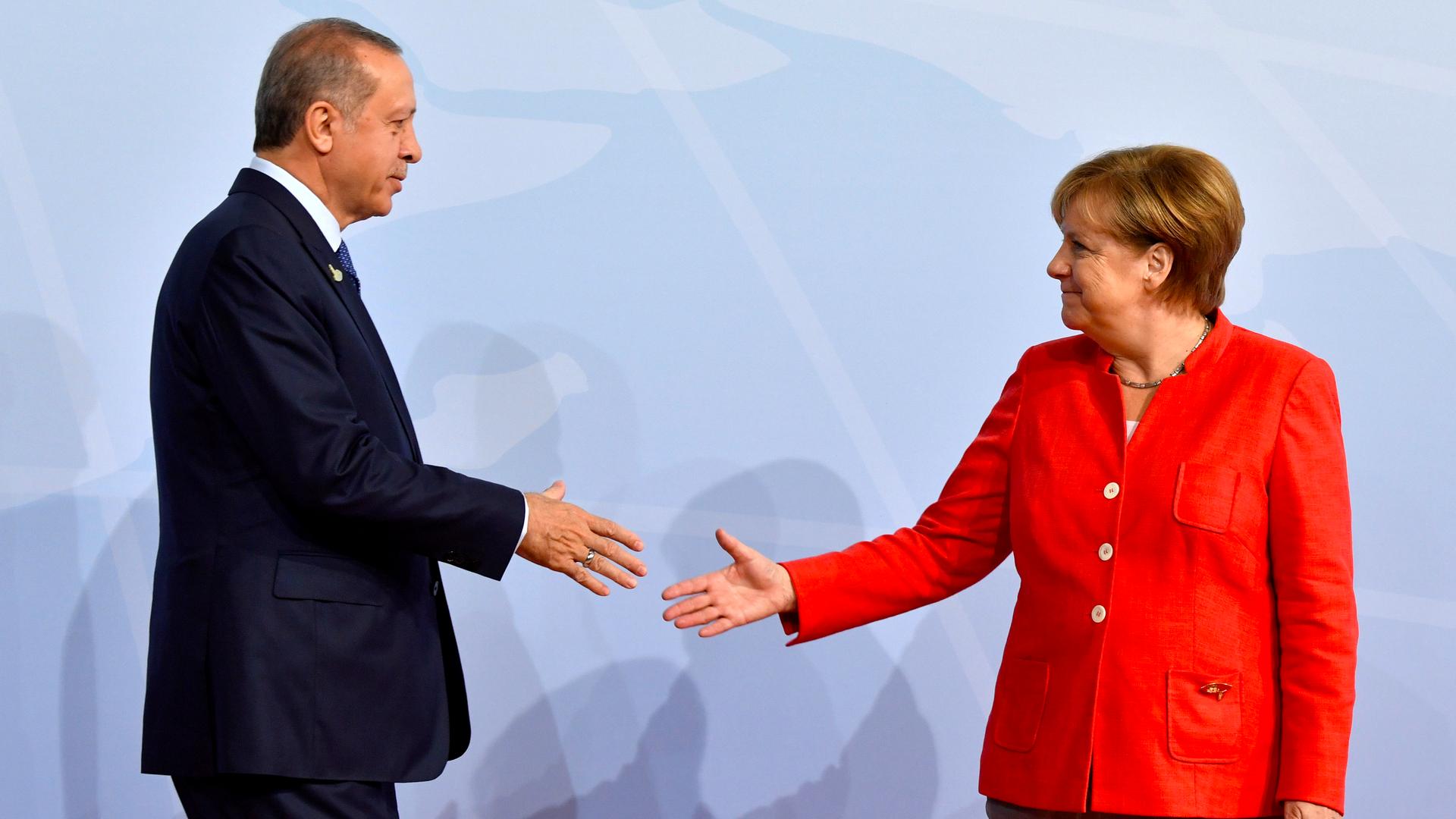A spokesman for Turkish President Recep Tayyip Erdogan accused German politicians on Monday of indulging in populism after Germany Chancellor Angela Merkel said she would seek an end to Ankara’s European Union membership talks.
Merkel – seeking a fourth term in office in Germany’s September 24 general elections – said in a debate on Sunday it was clear that Turkey should not join the European Union. The chancellor also said she would talk to other EU leaders about ending the stalled accession process.
“It is not a coincidence that our President Erdogan was the main topic of the debate,” Erdogan’s spokesman Ibrahim Kalin tweeted in Turkish, criticising what he described “indulgence in populism” by mainstream German politicians.
“Germany and Europe’s attacks on Turkey/Erdogan, by ignoring essential and urgent problems, are reflections of the narrowing of their horizons,” Kalin said.
“We hope that the problematic atmosphere that made Turkish-German relations the victim of this narrow political horizon will end.”
Building a populist wall
Turkey’s European Union Affairs Minister Omer Celik on Monday said that any talk of ending his country’s negotiations for EU accession amounted to an “attack on Europe’s founding principles.”
“They are building a Berlin wall with bricks of populism,” Celik tweeted.
Turkey will “keep going with its head held high as a European country and a European democracy,” he said.
“Turkey not in a position to join”
“The chancellor’s words speak for themselves,” Merkel’s spokesman, Steffen Seibert, said on Monday, when asked about the chancellor’s remarks.
“At the moment, Turkey is not at all in a position to join the European Union,” he said. “In fact, the negotiations are dormant at the moment,” Seibert said, adding that EU leaders would pick up the issue when they meet in October.
Deteriorating ties
Turkey’s ties with Germany and several other EU states have deteriorated sharply in the last 12 months.
Points of dispute have included the barring of Turkish politicians from holding campaign rallies in EU countries ahead of an April referendum this year on moving Turkey from a parliamentary to a presidential system of governance, and German safe harbour for people allegedly involved in the July 2016 attempted coup in Turkey.
Turkey says it has sent Germany an extradition request for one of the main suspects it says was behind the coup attempt when members of the military on July 15 attempted to overthrow the government and Erdogan’s presidency. Almost 250 people, mostly civilians, were killed in the attempted putsch and more than 2,000 were wounded.
Germany’s Spiegel magazine on Saturday reported that Germany had rejected a formal request from Turkey to freeze assets of members of the network of US-based Fetullah Gulen, accused by Ankara of orchestrating the coup attempt, a charge Gulen denies.
Turkey has also restricted access for German parliamentarians seeking to visit German troops at the Incirlik airbase in southern Turkey, leading Berlin to announce it was moving those forces out of Turkey. It has also detained several German nationals, including journalist Deniz Yucel.
On Monday the German foreign ministry said one of two nationals arrested in Turkey had been freed.










Discussion about this post